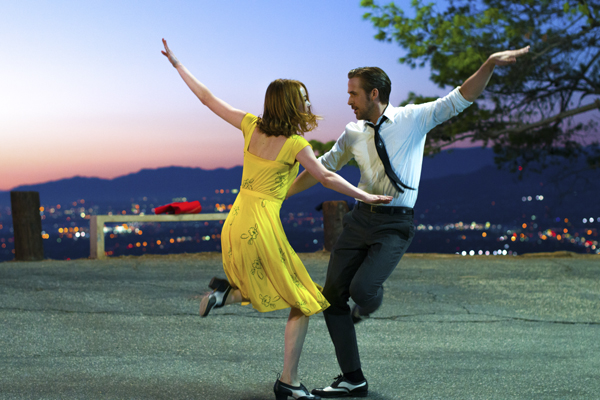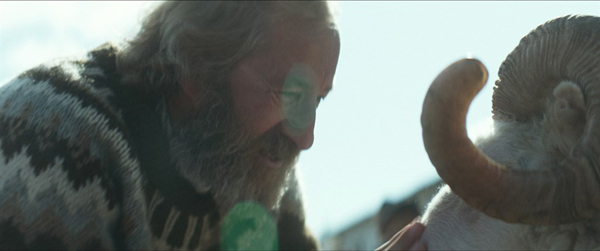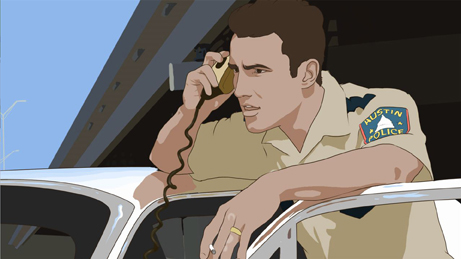It was a very good year, so much so that there were numerous ways to come up with a credible best-of list featuring a wide range of movies. Some of the titles that could easily have landed in the lineup include Aquarius; Elle; From Afar; I Am Not Your Negro; I, Daniel Blake; Little Men; Manchester by the Sea; Paterson; 13th; and The Witness. A combination of any with the ones selected and listed below would make an impressive roll call.
All of the following films originally received a positive review and were selected after some give-and-take feedback with 12 of the site’s reviewers, and with an eye for a variety of genres, modes of filmmaking, films off the beaten path, and emerging directors. From a swoonworthy musical to a gritty crime drama filmed in China, these 10 film include some big names playing at a theater near you and some others that may not be as well-known but that you should add to your Netflix queue.
Director/co-writer Jacques Audiard’s Dheepan is a gripping look into the psychological baggage desperate refugees bring with them into a Europe mired in problems. In the chaotic aftermath of Sri Lanka’s civil war, an ex-rebel fighter (Antonythasan Jesuthasan, himself a former child soldier) realizes France will only give political asylum to families. He gets a passport in the name of Dheepan; negotiates with a stranger to portray his wife; and she grabs an orphan to pose as their nine-year-old daughter. In France, the resettlement agency finds him a job as a custodian with an apartment in a towering housing development. But the complex is in the midst of a civil war between violent, drug-dealing gangs, and the three cannot avoid getting drawn in as the bullets fly. As a result, Dheepan’s terrorist instincts are as frightening as they are brutally successful in defending his accidental family.–Nora Lee Mandel
Hooligan Sparrow comes across as a heart-pounding thriller centered on a paranoid conspiracy entangling sympathetic bystanders, but this is a documentary. Debut director Nanfu Wang returned to her native China to film activist Ye Haiyan, known on Chinese social media as “Hooligan Sparrow.” By organizing protests, the Sparrow helps voiceless people who, like her, have migrated to cities from poor rural areas and found no recourse for egregious bureaucratic behavior. Trying to stay ahead of the police, Wang’s surreptitious filming picks up suspicious faces; some turn out to be state security spies. (She learns to hide digital footage to smuggle it out.) The Sparrow’s wholehearted dedication consumes friends and family as she goes in and out of jail, also inspiring Wang’s commitment.–NLM
Seeing Damien Chazelle’s modern-day musical La La Land is to experience a new master filmmaker boldly showing off his skill set to play an audience like putty in his hands. Chazelle aims to wow and delight in this Los Angeles–set romance, and he succeeds. Wearing his influences proudly on his sleeve—namely Vincent Minnelli and Jacques Demy—he synthesizes what made those artists great while adding a fresh perspective. Through sheer skill and sincere heart, Chazelle and his old-school, charming leads Ryan Gosling and Emma Stone turn a simple story to a deeply moving picture for the ages.–Hayden Jacoves
An oddball black comedy set in a dystopian world, The Lobster turns the rituals of courtship, sex, and marriage inside out, skewering convention at every turn. Directed by Greek filmmaker Yorgos Lanthimos in his English-language debut, the absurdist film stars Colin Farrell as a divorced man who must find a new mate within 45 days in a bizarro matchmaking hotel or be transformed into the animal of his choice—a lobster. However, Farrell’s everyman, a marvel of vulnerability and restraint, can follow the dictates of the land only so far. Rigorous, hilarious, and disturbing, The Lobster finds Lanthimos once again exploding societal norms and institutions, as he did in Dogtooth and Alps, and securely taking a berth among Buñuel, Lynch, and Kaufman in the canon of surrealist filmmakers.–Rania Richardson
Heartbreaking yet beguiling, Barry Jenkins’s Moonlight takes a cool-headed look at loneliness and betrayal, and comes away with the narrowest glimpse of redemption. Three actors play one character at different stages of life: a fatherless, frightened little boy called Little; Chiron, a bullied and miserable teenager; and a closed-off adult criminal named Black. The child’s only protector is a drug dealer, and his mother is an addict; these facts mark him for life, as does a rare act of tenderness he experiences. The film is steeped in realism, thanks to lived-in performances and the sad detritus of poverty, but deceptively simple yet gorgeous shots and a stirring soundtrack elevate it to something more poetic and transcendent. Not many films could pull off the equilibrium, but Moonlight does, and stunningly so.–Caroline Ely
The murder trial of O.J. Simpson is the quintessential American crime story, weaving together issues of race, class, and celebrity in a way that might feel unbelievable if a writer had made it up. Ezra Edelman’s massive, nearly eight-hour documentary O.J.: Made in America is the ultimate representation of the story and, as such, feels absolutely essential. Edelman also draws out, without making too fine a point on it, the correlation of the 24-hour news circus that was covering the trial with the dumbing down of public consumption through sensationalistic journalism. Seemingly no rock goes unturned in this decades-spanning look back, which turns moments and images that might have lost their meaning, such as the Bronco car chase and the glove-wearing moment in court, into immediate cinematic experiences. This film should become a mandatory binge to gain citizenship.–HJ
Johnny Ma’s debut Old Stone tells the story of a well-meaning, working-class taxi driver, Lao Shi (Chen Gang), involved in a traffic accident that critically injures a man. After rushing the injured to the hospital and saving his life, Shi finds himself responsible for the costly medical bills when no other party steps forward. His uphill battle against a bureaucracy that punishes him for not following procedure, i.e., letting the man die, is enlivened by some dark humor. But make no mistake: This is a cold, hard, and nightmarish look at how modern life has taken away our sense of duty toward our fellow man. A Chinese-Canadian co-production, this tale of a Good Samaritan-turned-avenger is relevant to audiences everywhere.–Phil Guie
Furrowed faces and tangled facial hair dominate the screen in Grimur Hakonarson’s wintry, laconic gem Rams—and that’s only on the sheep. An accidental discovery at a livestock judging contest opens up an old feud between two long-estranged brothers and disrupts an Icelandic community’s livelihood. Punctuated by enigmatic silences and scenes of low-key farm life, Rams moves between deadpan comedy and states of panic and heartbreak. The subdued film sizes up the bond between animals and men and the shifting of family loyalty with an impassive but transfixing gaze, reinforced by the stark, unforgiving landscape.–CE
German director Maren Ade’s exceptionally nuanced farce Toni Erdmann explores familial differences and how two apparent opposites can resolve years of estrangement. Uproarious and moving, the film follows an eccentric, free-spirited father as he horns in on his careerist daughter’s life, much to her embarrassment. Steely and humorless, she can’t tolerate her father’s pranks and false identities. To her chagrin, his lighthearted ways charm her clients and friends, but they also wreck his own opportunities for success. Through a series of surprising antics, including an ersatz karaoke party, a wardrobe malfunction, a beastlike costume, and a whoopee cushion, nonstop lunacy culminates in a startling moment of grace.–RR
As of this writing, there have been more than 400 mass shootings in the United States in 2016. It’s become so commonplace that one must be particularly horrific to even break through the cultural consciousness. That wasn’t the case back in 1966, when a lone sniper took hold of the University of Texas Tower. Keith Maitland’s unique documentary Tower takes you inside the unimaginable terror of those 96 minutes. Using a process that has animation drawn over digital video, the film presents reenactments with actors narrating the exact words that their counterparts said either at the time or for the film—the real-life subjects later appear in live-action. The result is a disorienting and highly emotional movie about heroism in the face of something that at the time seemed unthinkable, but is all too common now.–HJ









Leave A Comment